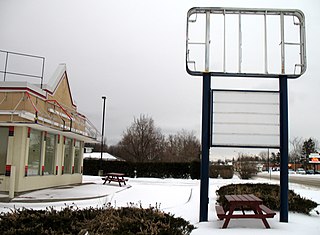Bankruptcy is a legal process through which people or other entities who cannot repay debts to creditors may seek relief from some or all of their debts. In most jurisdictions, bankruptcy is imposed by a court order, often initiated by the debtor.
Chapter 11 of the United States Bankruptcy Code permits reorganization under the bankruptcy laws of the United States. Such reorganization, known as "Chapter 11 bankruptcy", is available to every business, whether organized as a corporation, partnership or sole proprietorship, and to individuals, although it is most prominently used by corporate entities. In contrast, Chapter 7 governs the process of a liquidation bankruptcy, though liquidation may also occur under Chapter 11; while Chapter 13 provides a reorganization process for the majority of private individuals.
Personal bankruptcy law allows, in certain jurisdictions, an individual to be declared bankrupt. Virtually every country with a modern legal system features some form of debt relief for individuals. Personal bankruptcy is distinguished from corporate bankruptcy.
Insolvency is the state of being unable to pay the debts, by a person or company (debtor), at maturity; those in a state of insolvency are said to be insolvent. There are two forms: cash-flow insolvency and balance-sheet insolvency.

Zoom Airlines Inc. was a Canadian low-fare scheduled transatlantic airline with its headquarters in the Place Bell Canada building in Ottawa, Ontario. Zoom operated year-round scheduled services to Europe, and charter services to South America, Caribbean, and Southern United States destinations with Canadian tour operators.
A trustee in bankruptcy is an entity, often an individual, in charge of administering a bankruptcy estate.
Bankruptcy in the United Kingdom is divided into separate local regimes for England and Wales, for Northern Ireland, and for Scotland. There is also a UK insolvency law which applies across the United Kingdom, since bankruptcy refers only to insolvency of individuals and partnerships. Other procedures, for example administration and liquidation, apply to insolvent companies. However, the term 'bankruptcy' is often used when referring to insolvent companies in the general media.

The Bankruptcy and Insolvency Act (the Act) is one of the statutes that regulates the law on bankruptcy and insolvency in Canada. It governs bankruptcies, consumer and commercial proposals, and receiverships in Canada.
In England and Wales, an Individual Voluntary Arrangement (IVA) is a formal alternative for individuals wishing to avoid bankruptcy. In Scotland, the equivalent statutory debt solution is known as a Protected Trust Deed.

The Insolvency Act 1986 is an Act of the Parliament of the United Kingdom that provides the legal platform for all matters relating to personal and corporate insolvency in the UK.
SR Telecom Inc. was a broadband wireless systems manufacturer headquartered in Montreal, Quebec, and present in over 130 countries around the world. Established in 1981, SR Telecom provided urban and rural telecommunications providers with wireless systems delivering voice, data and multimedia services.
As a legal concept, administration is a procedure under the insolvency laws of a number of common law jurisdictions, similar to bankruptcy in the United States. It functions as a rescue mechanism for insolvent entities and allows them to carry on running their business. The process – in the United Kingdom colloquially called being "under administration" – is an alternative to liquidation or may be a precursor to it. Administration is commenced by an administration order.
The Parliament of Canada has exclusive jurisdiction to regulate matters relating to bankruptcy and insolvency, by virtue of s.91 of the Constitution Act, 1867. It has passed the following statutes as a result:

MNP is one of the largest full-service chartered accountancy and business advisory firms in Canada. MNP's head office is in Calgary, Alberta, and has offices from Vancouver Island to Halifax. With over 4,500 staff, MNP is currently ranked as one of the largest professional service firms in Canada.

Commercial insolvency in Canada has options and procedures that are distinct from those available in consumer insolvency proceedings. It is governed by the following statutes:

The Companies' Creditors Arrangement Act is a statute of the Parliament of Canada that allows insolvent corporations owing their creditors in excess of $5 million to restructure their business and financial affairs.

The Wage Earner Protection Program Act, is an act of the Parliament of Canada. It was part of a package of reforms to the insolvency law of Canada that were brought into force in 2008 and 2009 to compensate employees of companies made bankrupt or placed into receivership under the Bankruptcy and Insolvency Act. It was subsequently expanded in 2011 to cover employees who lose their jobs when their employer's attempt at restructuring subsequently ends in bankruptcy or receivership.

British Virgin Islands bankruptcy law is principally codified in the Insolvency Act, 2003, and to a lesser degree in the Insolvency Rules, 2005. Most of the emphasis of bankruptcy law in the British Virgin Islands relates to corporate insolvency rather than personal bankruptcy. As an offshore financial centre, the British Virgin Islands has many times more resident companies than citizens, and accordingly the courts spend more time dealing with corporate insolvency and reorganisation.
The anti-deprivation rule is a principle applied by the courts in common law jurisdictions in which, according to Mellish LJ in Re Jeavons, ex parte Mackay, "a person cannot make it a part of his contract that, in the event of bankruptcy, he is then to get some additional advantage which prevents the property being distributed under the bankruptcy laws." Wood VC had earlier observed that "the law is too clearly settled to admit of a shadow of doubt that no person possessed of property can reserve that property to himself until he shall become bankrupt, and then provide that, in the event of his becoming bankrupt, it shall pass to another and not to his creditors."

Chandos Construction Ltd v Deloitte Restructuring Inc, 2020 SCC 25 is a landmark case of the Supreme Court of Canada concerning the position of the anti-deprivation rule within Canadian insolvency law. It held that, because of differences in Canadian law, the rule has wider application relative to the English rule applied by the UK Supreme Court in Belmont Park Investments Pty Ltd v BNY Corporate Trustee Services Ltd.







